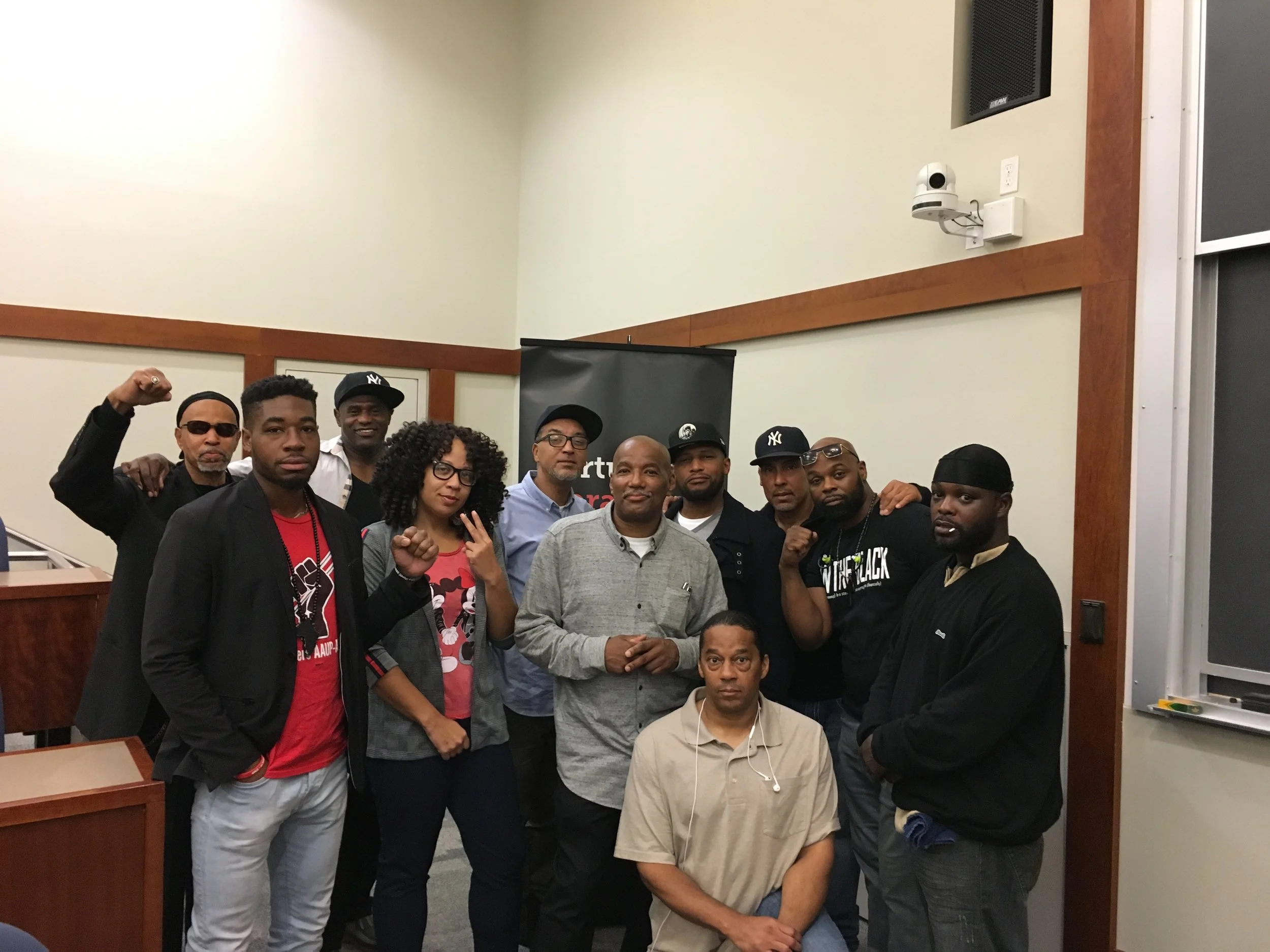Dear Humanity,
After being held in solitary confinement isolation for almost 8 years I have finally been released, although I am still housed in segregated confinement and not in the prison's general population. I write this letter to Humanity due to my concerns of the continued practice of using solitary confinement isolation in this State of New Jersey and nation's prisons and elsewhere, while also providing a practical alternative solution that has yet to be tried and implemented.
Solitary confinement, for those who don't know, is keeping a human being locked in a prison cell without contact with any other human being including family, friends, etc., for almost all of 24 hours a day, 7 days a week, except for a 10 minute shower daily or periodically throughout the week, and perhaps the opportunity for out-of-cell recreation for about an hour and a half 3 days a week; but even when attending recreation one is still solitarily confined in a cage the approximate size of one's prison cell or even smaller.
Solitary confinement is often now labeled by corrections officials with euphemisms such as administrative segregation, closed custody units, close supervision units, etc. This is only done to hide from the public the fact its prisons utilize solitary confinement. But changing the name of solitary confinement with euphemisms while not changing its conditions is a meaningless show of politics.
Besides the fact solitary confinement is by its very nature inhumane, it also has the debilitating affects of gradually deteriorating one's mental and physical health; and for those already with mental illnesses, solitary confinement only exacerbates the problem.
I have experienced and witnessed solitary confinement deteriorate my and others' mental and physical health.
Personally, I have experienced deterioration of my mental and physical health though not to the level of insanity. I have experienced the speed of which I think and process information decrease as a direct result of solitary confinement, as well as have experienced my daily energy be reduced to a constant lethargic state, abnormal constipation and slowed bowel movements, not to mention weakened bones and muscles.
I have witnessed others whom solitary confinement has deteriorated their mental and physical health much worse than my own, to the extent of being reduced to a vegetable state and insanity. I have also witnessed those with mental illnesses mental health problems exacerbate to destructive behavior, self-harm, delusions, schizophrenia and other irrational behavior. Two notable examples I feel needed to be mentioned are of two inmates by the last names K and M, respectively, who are currently housed on New Jersey State Prison's Unit 2B in solitary confinement.
It is known that at one point Mr. K functioned as a normal person and prisoner. After years of being subject to solitary confinement under the false need of MCU (Management Control Unit) status (which he's still on on level 1 status though his handicap and mental illness prevents him from being able to take any programs to move up to the next levels although he's no behavior problem), he has been reduced to a lethargic vegetable state. He no longer remembers his age, he talks to himself throughout the day and early hours of the night, and has a psychosis where he claps and laughs sporadically every 10 minutes or so for no purpose. The medication he takes causes him to enter into a deep coma-like state where banging on the door cannot awake him. He even sleeps while officers attempt to take count. In fact, on one occasion he was in so deep a sleep that when prison staff attempted to move him to another housing cell, they had to call an emergency code and have medical staff place him on a stretcher while asleep just to move him to another cell.
Another sad reality to his situation is that he's handicap and can barely walk to and from the shower. The prison fails to provide him any support/assistance for him to walk to and from the shower. As a consequence of their failure to provide him some sort of assistance to walk to and from the shower, each time he goes to take a shower he trembles and limps while trying to support himself with the wall or gate to get to the shower, which takes him approximately 5-10 minutes to complete though others only seconds. Once while attempting his laborious trek to the shower he fell. After this happened, rather than providing him some support or assistance to walk to the shower, prison officials punished him by denying him showers for approximately a month or more despite his innocent requests to be provided an opportunity to shower. At this point I felt the need to intervene and did so by calling Ombudsman and reported what was taking place. As a result of my phone call a few days later a sergeant came to K's cell to offer him a shower (still with no support or assistance). And on the same day he was offered a shower I was denied a shower in retaliation for reporting what was taking place. But me being denied a shower for one day was worth K's showers being resumed again. If anyone from and with humanity receives this message, please intervene further on Mr. K's behalf and seek his immediate release from solitary confinement and into an appropriate medical unit due to his handicap and mental illness.
Inmate J. M is another effected by the affects of solitary confinement. It's known Mr. M had mental health issues prior to solitary confinement, but isolation has only exacerbated his problems. He talks to himself, or rather screams to himself, constantly curses out a particular person who's nowhere around, drinks his toilet water from the toilet bowl, refuses to be tested for tuberculosis, and often floods his cell out (and consequently others) with toilet water infested with feces and urine. One time he flooded out his cell with excrement water at/around 3:00 a.m. for no provoked reason while I was his neighbor. Fortunately I was awake reading and prevented it from entering my cell. However, the prison and DOC thinks it's best for Mr. M to be locked in solitary confinement rather than provided appropriate treatment in a less oppressive environment. Someone from and with humanity please intervene and seek Mr. M' immediate release from solitary confinement to an appropriate mental health and/or medical unit or facility.
These are just two examples of the extreme debilitating effects of solitary confinement on the human condition, in addition to my own, there are tens or hundreds that can be mentioned.
What then is the solution and practical alternative to solitary confinement? Simple: Even if a prison wants to keep certain inmates segregate from the general prison population, such can be achieved without solitary confinement by housing those inmates in a mini-population where they congregate only amongst themselves and peers on their designated unit. This way they are not in general population, but also are not in solitary confinement neither. This is a midway solution for those of competing interests, which our Legislature has yet attempted to implement but should prepare a bill to do so. Also the DOC may take its own initiative to implement same.
Solitary confinement should only be for the repeat extremely violent and destructive, disruptive inmates and those who request such housing.
An example of this mini-population I mention exists on my current housing unit--Unit 1EE, NJSP--but could and should be expanded and implemented to end all solitary confinement. 1EE is a unit where inmates congregate for recreation, meals and group programs amongst themselves but never congregates amongst general population inmates. There's no reason why other solitary confinement units cannot be converted to function as 1EE. Inmates of similar concern and status can be housed in mini-population units rather than solitary confinement, whether PC, IPC, MCU, Ad-Seg and even Title 30 inmates. There's no reason why inmates on these statuses cannot congregate amongst themselves rather than left to sit in solitary confinement.
If this practical idea of superseding solitary confinement with mini-populations is implemented in this State, New Jersey would be the most progressive state in leading reform to end solitary confinement, which would serve as a beacon and model for all other local, state and federal Department of Corrections and Bureau of Prisons in this nation and even internationally.
Let those with humanity whom this message reaches take a stand and take action to end solitary confinement consistent with the reform ideas stated herein. Sometimes one within the picture can see the picture more clearer than on the outside looking in.
Sincerely,
************















